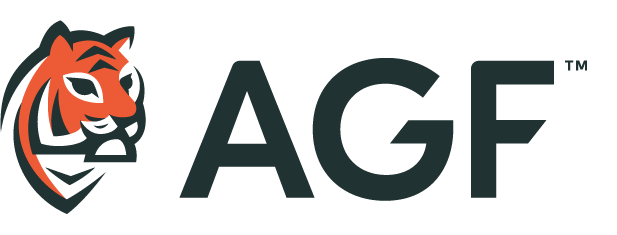by Greg Valliere, AGF Management Ltd.

Insights and Market Perspectives
Author: Greg Valliere
July 21, 2020
IT WON’T BE EASY, but a three-step process for passing a massive stimulus bill began to take shape yesterday with all sides agreeing that the Covid-19 spike necessitates the passage of another relief package. It still looks like a $1 trillion price tag will be the floor, with a final cost of close to $1.5 trillion.
THE FIRST STEP WILL BE GETTING REPUBLICANS on the same page; the second step will come when they agree with the White House on key provisions; the third step will be the toughest — getting Democrats to agree to a bill that will cost about half of the $3 trillion package they passed weeks ago.
MOVING THE BALL: There will be plenty of sound bites that could move the markets this afternoon after Senate Republicans have lunch with Steve Mnuchin and White House Chief of Staff Mark Meadows, who will be crucial negotiators as a bill comes into focus. They will meet with Nancy Pelosi and Chuck Schumer later today.
THEN THE NEXT BIG DEVELOPMENT will be the release later this week of Mitch McConnell’s GOP bill, then the negotiations will heat up. Based on what we’re hearing, this is where the key issues stand:
Unemployment insurance: It’s unlikely that the $600 weekly benefits, scheduled to end in less than two weeks, will be retained. That amount could be cut in half, or repealed entirely — replaced by some type of signing bonus for people who return to work.
Payroll tax cut: President Trump yesterday softened his threat to veto a bill that
doesn’t include this provision, as lukewarm Republicans looked for a compromise —
perhaps enacting some type of payroll tax cut next year. The Wall Street Journal reports this morning that a deferred payroll tax cut is possible.
Aid to state and local governments: This is still non-negotiable for the Democrats, Schumer said yesterday. Republicans will have to give the Democrats something, perhaps $400 billion, plus the inclusion of a provision that would give states flexibility in spending money already appropriated to them.
Another check: There’s widespread agreement in both parties that some type of check — at least $1,000 for non-wealthy individuals — will be in the final bill.
Aid to business: Despite abuses and delays in the previously enacted provisions, this is very popular and will be extended — primarily for small companies, with much tighter controls.
A tax credit for protective equipment: Businesses will get aid to buy protective equipment for employees. This is virtually certain.
Liability insurance: A final bill almost certainly would have to contain a provision that would protect businesses from Covid-related lawsuits. Mitch McConnell will prevail on this.
Money for schools: This is virtually certain also; the price tag for K thru 12 and college aid will be close to $100 billion. Two thorny details — will schools get more aid if they don’t fully open, and what about aid to private and religious schools?
Money for Testing: Many Republicans were furious when they heard that $50 billion for testing and tracing is opposed by the White House, which says money already appropriated hasn’t been used up. This is about appearances; there will be more money for testing and for the Centers for Disease Control in the final bill.
BOTTOM LINE: Differences between the two parties on the specifics are so enormous that the entire process could break down by this coming weekend; both sides will carefully scrutinize the polls and may threaten to walk away from a deal. This will just be theater.
THE COST OF DOING NOTHING is simply too great — and Trump desperately needs a deal — so we’ll predict a 70-30 chance that a massive package will win enactment by early August. It’s not a 100 percent chance, however.
The views expressed in this blog are provided as a general source of information based on information available as of the date of publication and should not be considered as personal investment advice or an offer or solicitation to buy and/or sell securities. Speculation or stated believes about future events, such as market or economic conditions, company or security performance, or other projections represent the beliefs of the author and do not necessarily represent the view of AGF, its subsidiaries or any of its affiliated companies, funds or investment strategies. Every effort has been made to ensure accuracy in these commentaries at the time of publication; however, accuracy cannot be guaranteed. Market conditions may change and AGF accepts no responsibility for individual investment decisions arising from the use of or reliance on the information contained herein. Any financial projections are based on the opinions of the author and should not be considered as a forecast. The forward looking statements and opinions may be affected by changing economic circumstances and are subject to a number of uncertainties that may cause actual results to differ materially from those contemplated in the forward looking statements. The information contained in this commentary is designed to provide you with general information related to the political and economic environment in the United States. It is not intended to be comprehensive investment advice applicable to the circumstances of the individual.
AGF Investments is a group of wholly owned subsidiaries of AGF Management Limited, a Canadian reporting issuer. The subsidiaries included in AGF Investments are AGF Investments Inc. (AGFI), AGF Investments America Inc. (AGFA), AGF Asset Management (Asia) Limited (AGF AM Asia) and AGF International Advisors Company Limited (AGFIA). AGFA is a registered advisor in the U.S. AGFI is registered as a portfolio managers across Canadian securities commissions. AGFIA is regulated by the Central Bank of Ireland and registered with the Australian Securities & Investments Commission. AGF AM Asia is registered as a portfolio manager in Singapore. The subsidiaries that form AGF Investments manage a variety of mandates comprised of equity, fixed income and balanced assets.
About AGF Management Limited
Founded in 1957, AGF Management Limited (AGF) is an independent and globally diverse asset management firm. AGF brings a disciplined approach to delivering excellence in investment management through its fundamental, quantitative, alternative and high-net-worth businesses focused on providing an exceptional client experience. AGF’s suite of investment solutions extends globally to a wide range of clients, from financial advisors and individual investors to institutional investors including pension plans, corporate plans, sovereign wealth funds and endowments and foundations.
For further information, please visit AGF.com.
© 2020 AGF Management Limited. All rights reserved.
This post was first published at the AGF Perspectives Blog.













